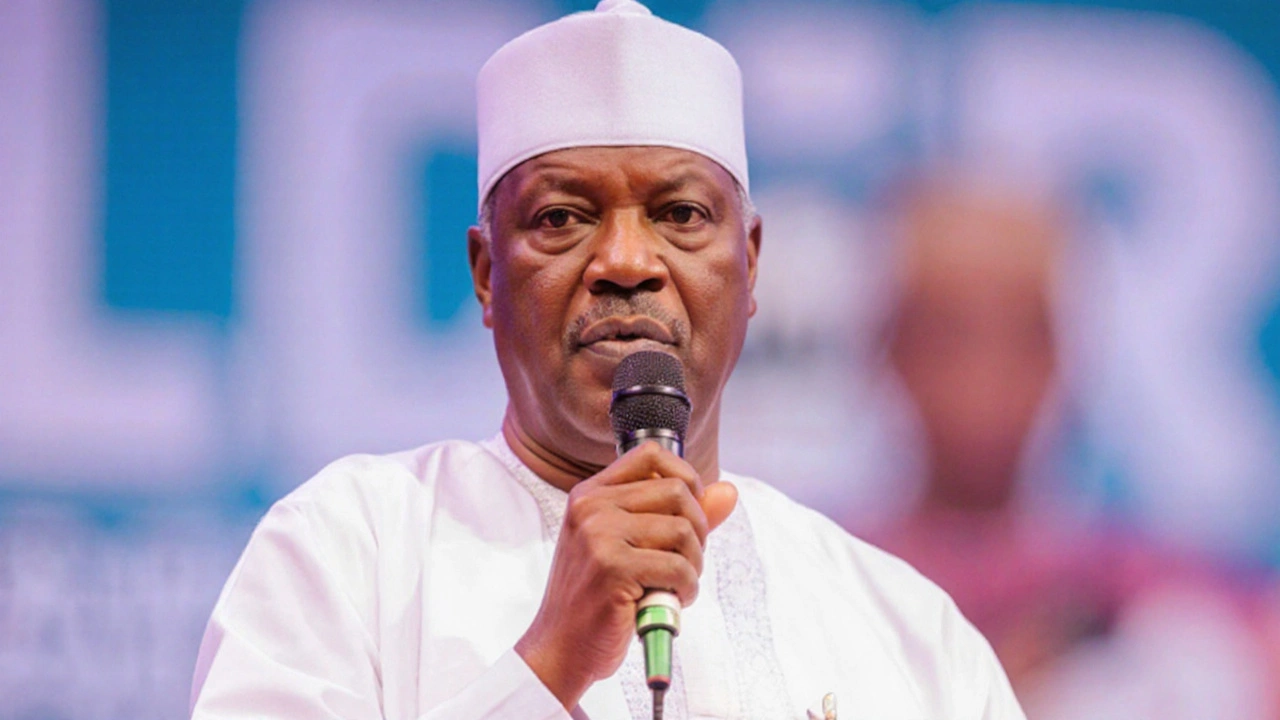Why Atiku wants a public vote for the INEC chief
Atiku Abubakar has taken a bold step by asking the electorate to pick the next INEC chairman election winner themselves. His argument is simple: when the people choose the head of the electoral commission, confidence in the vote‑counting process rises. The current chairman, Prof. Mahmood Yakubu, will finish a historic ten‑year run in November 2025 after being first appointed by former President Buhari in 2015 and re‑appointed in 2020. Atiku believes the moment is ripe for a fresh start, especially as the 2027 general elections loom.
Under the 1999 Constitution, the president nominates the INEC chair and Senate confirms the choice. Critics say that system leaves the post vulnerable to political bargaining. By proposing a direct election, Atiku aims to remove that back‑room deal‑making and put the decision in the hands of ordinary voters, a move he says will curb manipulation and boost credibility.

Political backdrop and the road to 2027
Atiku is not just talking reform; he is positioning himself as the main opposition contender for the 2027 presidency. He is running under the African Democratic Congress (ADC) umbrella, which now includes allies such as Labour Party’s Peter Obi and former Rivers State governor Rotimi Amaechi. The coalition is trying to rally fragmented opposition forces against the ruling All Progressives Congress (APC).
Throughout his campaign, Atiku has slammed President Bola Tinubu’s administration, labeling it a group of “oligarchs who promote poverty and insecurity.” He repeats that Nigeria is stuck in an “intensive care unit” and needs a rescue mission, which he promises to lead if elected.
Political analysts say the choice of the next INEC chair will be a decisive factor for the 2027 election’s legitimacy. They warn that a figure lacking integrity or independence could undermine the entire democratic process. Atiku’s demand for a public vote therefore strikes at the heart of Nigeria’s electoral credibility, promising a shift from elite appointments to citizen-driven selection.
Whether the proposal will gain legislative traction remains uncertain. The Senate would need to amend the constitutional procedure, and the president would still hold the formal power to nominate. Still, Atiku’s push has already sparked debate across civil society, with many groups echoing his call for greater transparency and public participation in the electoral system.







Ayan Kumar
September 26, 2025 AT 01:51Atiku's call for a direct election of the INEC chair is nothing short of a theatrical showdown between democratic ideals and entrenched power structures. He frames the proposal as a citizen-empowered revolution, promising to graft legitimacy onto a system long marred by back‑room deals. The drama intensifies when you consider that the current chairman, Prof. Mahmood Yakubu, has survived a decade of political turbulence with the president’s blessing. Yet Atiku insists that the people, not the Senate, should be the ultimate arbiters of who safeguards our votes. This narrative, while compelling, rests on the assumption that mass voting on a bureaucratic post will automatically strip away partisan bias. Critics argue that popular elections could merely replace one set of patronage networks with another, as candidates vie for campaign cash and influence. Moreover, the constitutional amendment required is a Herculean task, demanding Senate consensus and presidential acquiescence. In a nation where legislative inertia often stalls reforms, the feasibility of this vision appears doubtful. Still, the symbolism cannot be dismissed; a public choice would undeniably amplify scrutiny over the chair’s performance. The proposal also raises logistical questions about ballot design, voter education, and the cost of a nationwide campaign. If the electorate is to decide, they must be equipped with clear criteria to evaluate competence, impartiality, and integrity. Atiku’s coalition, comprising the ADC, Labour, and regional allies, hopes this bold move will galvanize opposition support ahead of the 2027 polls. The opposition’s narrative portrays the current administration as a cabal of oligarchs, and the INEC reform is cast as a rescue mission from an “intensive care unit.” Whether this rhetoric translates into practical policy remains the central debate of the season. Ultimately, the success of Atiku’s strategy will hinge on his ability to convert theatrical flair into concrete legislative momentum.
Nitin Jadvav
October 3, 2025 AT 16:00Oh sure, because sending a whole nation to the polls to pick a bureaucrat is exactly what we need when we can’t even agree on the snack aisle at the grocery store. The drama will be real, folks-just wait for the campaign ads promising "the most exciting INEC chair ever!"
Adrish Sinha
October 11, 2025 AT 06:08It's cool to see fresh ideas in politics, especially when they involve more people. Direct elections could give citizens a bigger voice in how elections are run.
Arun kumar Chinnadhurai
October 18, 2025 AT 20:16One thing to keep in mind is that for any new system to work, we need solid education campaigns so voters understand what the INEC chair actually does. Providing clear, simple information can help make the process more inclusive and effective for everyone.
Aayush Sarda
October 26, 2025 AT 09:25From a nationalist standpoint, empowering the electorate aligns with the sovereign right of Nigerians to shape their own destiny. The current appointment mechanism feels like a colonial relic, where elites decide behind closed doors. By opening the selection to the public, we assert our independence from foreign‑influenced political engineering. It also sends a message to the international community that Nigeria is serious about transparent governance. However, we must guard against populist pandering that could compromise the technical expertise required for the role. A balanced approach would combine public input with stringent qualification criteria. Ultimately, the move could fortify national unity if executed with genuine intent.
Mohit Gupta
November 2, 2025 AT 23:33Wow, this is exciting!
Varun Dang
November 10, 2025 AT 13:42Honestly, it's uplifting to think about a system where our votes carry more weight beyond just picking a president. If we can get the right safeguards in place, this could be a real step forward for democracy.
Stavya Sharma
November 18, 2025 AT 03:50The proposal, while well‑intentioned, overlooks the institutional inertia that has historically resisted such sweeping reforms. Expecting a swift constitutional amendment without broad bipartisan support is optimistic at best. Moreover, the premise that a popular vote will inherently eliminate manipulation rests on a naive view of voter behavior. We must consider the risk of campaign financing turning the INEC chairmanship into another politicized prize. A more pragmatic approach might involve incremental reforms, such as stricter vetting and transparent appointment processes, before leaping to direct elections.
chaitra makam
November 25, 2025 AT 17:58That makes sense-small steps can still lead to big changes over time.
Amit Agnihotri
December 3, 2025 AT 08:07Direct elections risk turning a technical office into a popularity contest; integrity could suffer.
Erica Watson-Currie
December 10, 2025 AT 22:15Even if the system is flawed, the desire for change reflects a deep yearning for legitimacy.
Mark Pelletier
December 18, 2025 AT 12:24When we contemplate the notion of public participation in appointing a key electoral official, we traverse a labyrinth of philosophical considerations about authority, consent, and the very fabric of democratic legitimacy; the act of voting, in this expanded sense, invites a reflective pause on the weight we assign to collective judgment versus expert stewardship, and perhaps the most profound question remains whether the act itself can bridge the chasm between institutional trust and popular expectation.
Cheyenne Walker
December 26, 2025 AT 02:32In practice, any reform should be grounded in clear procedural safeguards, ensuring that the selection process remains transparent, merit‑based, and resistant to undue influence, thereby preserving the integrity of the electoral system while still enhancing public confidence.